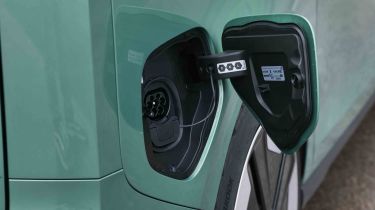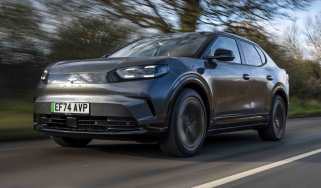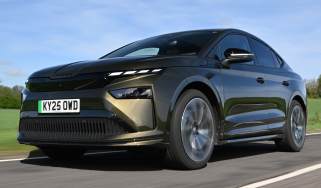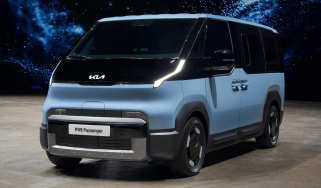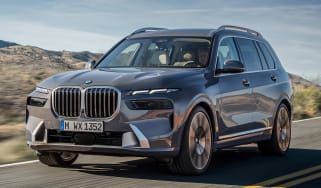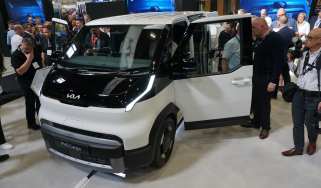Volkswagen ID. Buzz - Range, charging and running costs
It’s not a cheap car to buy, but its electric drive should keep running costs low, and residuals are strong

The Volkswagen ID. Buzz isn’t cheap, with prices starting at just under £60,000, but upgrading to LWB guise doesn’t cost a huge amount extra. There’s a modest premium of around £500 to pay for the longer version, while turning the five-seat model into a six-seater (or speccing the seven-seat LWB model with six seats) will cost you around £200.
Electric range, battery life and charge time
Surprisingly, the best performing model in the ID. Buzz line-up in terms of range is the long-wheelbase model in entry-level Life trim. Official figures state that it can travel up to 293 miles on a full charge, which is 10 miles further than the equivalent model in standard-wheelbase guise.
Larger wheels trim seven miles from the official range of the Style LWB, at 286 miles, while the standard-length version has a maximum range of 277 miles. As is often the case with the highest-spec EVs in a line-up, the most powerful, four-wheel-drive GTX has the shortest range, covering 282 miles in LWB guise, or 255 miles in its standard form.
But efficiency isn’t a strong point, because when you compare the ID. Buzz with the ID.7, a car that uses similar battery sizes, the latter adds at least 100 miles to these figures.
Used - available now

2018 Nissan
Qashqai
52,849 milesManualDiesel1.5L
Cash £10,900
2022 Peugeot
5008
46,225 milesManualDiesel1.5L
Cash £18,506
2023 Ford
Puma
67,042 milesManualPetrol1.0L
Cash £12,506
2023 Mercedes
EQC
21,307 milesAutomaticElectric
Cash £26,000We’ve only seen 3.0 miles per kWh from our own long-term ID. Buzz five-seater, while the heavier LWB model returned 2.9mi/kWh during our time with it. That relatively poor figure can be partly put down to cold weather, but this is still one of the less efficient EVs on the market. And despite the car’s high cost, a heat pump is only available as an option that adds around £1,000 to the asking price.
Charging speeds of up to 200kW are available, while a 170kW DC source will get the Volkswagen’s battery from 5-80 per cent capacity in half an hour. You can expect a full charge to take nine hours from an 11kW three-phase AC supply.
| Model | Battery size | Range | Insurance group |
| ID. Buzz 79kWh SWB | 79kWh | 283 miles | 37 |
| ID. Buzz 79kWh GTX SWB | 79kWh | 255 miles | 42 |
| ID. Buzz 86kWh LWB | 86kWh | 293 miles | 37 |
| ID. Buzz 86kWh GTX LWB | 86kWh | 282 miles | 42 |
Tax
Company car buyers will see annual outgoings of £475 at the 40 per cent rate if they choose an ID. Buzz for the 2024/25 tax year, with its high list price accounting for relatively steep rates for an EV. At least the car is still currently exempt from road tax (VED).
Insurance
Group ratings for the ID. Buzz range from 37-42, with the more powerful GTX version laying claim to the highest category.
Depreciation
One area where the ID. Buzz has consistently performed well is for residual values. It’s not quite at the peak of its desirability, as it was when first launched, but with figures in the 56-58 per cent range, it’s the best performer in the VW line-up, and one of the strongest mainstream models from any area of the market. The LWB version performs as well as the standard car, while the top-spec GTX is the best model of the whole range, at just under 58 per cent in LWB guise.
To get an accurate valuation of a specific model, check out our valuation tool...

